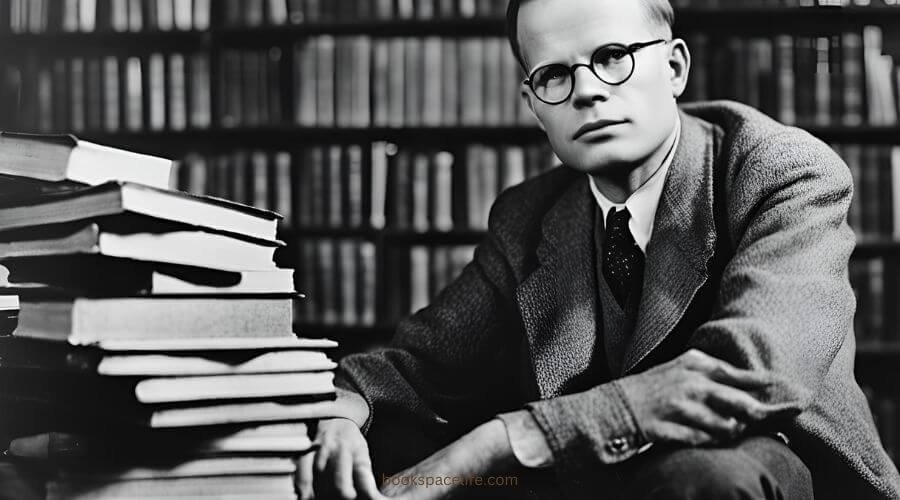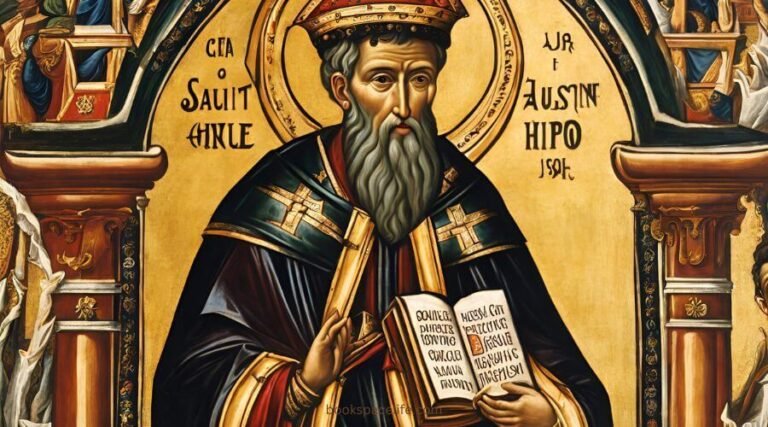Philo of Alexandria
Dietrich Bonhoeffer: The Life and Legacy of a Christian Philosopher and Theologian
Dietrich Bonhoeffer is regarded as one of the most important Christian philosophers and theologians of the 20th century.
Born in 1906, Bonhoeffer lived through a period of immense political turmoil, including the rise of the Nazi regime in Germany.
His theological ideas, combined with his unwavering moral convictions, led him to take courageous stances against Adolf Hitler’s dictatorship, ultimately resulting in his martyrdom.
Bonhoeffer’s theological works, his exploration of Christian ethics, and his resistance to totalitarianism continue to inspire Christians, philosophers, and political thinkers to this day.
Table of Contents
(1) Early Life and Education
Dietrich Bonhoeffer was born on February 4, 1906, in Breslau, a city that was then part of Germany (now Wrocław, Poland).
Bonhoeffer’s family was highly intellectual and deeply rooted in the German academic tradition. His father, Karl Bonhoeffer, was a distinguished psychiatrist and neurologist, and his mother, Paula Bonhoeffer, was a homemaker.
Growing up in a family of high intellectual caliber, Bonhoeffer had access to an environment of critical thought, philosophical inquiry, and spiritual contemplation.
As a young boy, Bonhoeffer was introduced to the world of ideas, philosophy, and theology. He showed early signs of brilliance, and his family nurtured his intellectual curiosity.
By the time he was 13 years old, Bonhoeffer had begun reading works by philosophers, and his family encouraged him to consider a career in academia.
However, it was his exposure to Christian theology that deeply impacted his life and work.
Bonhoeffer began studying theology at the University of Tübingen in 1923, and by 1927, he had earned his doctorate in theology with a dissertation on the concept of community in the church.
His doctoral work was highly regarded, and he quickly earned a reputation as a promising young theologian.
Bonhoeffer’s education continued in Berlin and New York, where he studied under some of the greatest theological minds of the time.
In particular, Bonhoeffer spent a year in the United States in 1930-1931, where he studied at Union Theological Seminary in New York.
There, he encountered the ideas of Protestant theologians such as Reinhold Niebuhr and was exposed to the social gospel movement, which significantly influenced his thinking.
Bonhoeffer’s education was marked by a blend of traditional Christian doctrine and progressive, socially engaged theology.
His exposure to the vibrant intellectual environment of America, particularly the African-American church and its rich theological insights, broadened his perspective and helped shape his own commitment to social justice.
(2) Bonhoeffer’s Philosophy and Theology
Dietrich Bonhoeffer’s theological contributions and philosophy emerged in a context of profound ethical and political conflict.
As Germany descended into the political chaos of the 1930s, Bonhoeffer began to question not only the religious duty of Christians in such a context but also the very nature of Christian discipleship.
(i) The Cost of Discipleship
One of Bonhoeffer’s most influential works, The Cost of Discipleship (1937), articulates the radical nature of Christian commitment.
The book is often considered a critique of “cheap grace,” a term Bonhoeffer coined to describe a form of Christianity that offered forgiveness without requiring true repentance or a change in the way one lives.
In Bonhoeffer’s view, true grace demands costly discipleship. He emphasized that Christians should not merely speak of grace in abstract terms but should live out the radical implications of Christ’s call, even at great personal sacrifice.
Bonhoeffer’s insistence on the seriousness of Christian commitment was a central theme throughout his life and work.
(ii) Ethics and Christian Responsibility
Bonhoeffer’s ethics were grounded in the teachings of Jesus and a commitment to active engagement with the world.
Unlike many of his contemporaries, who held to a more abstract or theoretical approach to ethics, Bonhoeffer believed that Christian ethics must be lived out in concrete actions in the world.
In his later work, Ethics (published posthumously in 1955), Bonhoeffer argued that Christian ethics cannot be separated from the personal responsibility of each individual.
He emphasized that Christians should not retreat from the world, but rather engage with it, understanding the profound responsibility they bear to act in love and justice in every circumstance.
Bonhoeffer was particularly concerned with the role of the church in addressing the evils of the world.
He believed that Christians, and especially the church, must not be passive in the face of injustice but must take a stand for the marginalized and oppressed.
This belief eventually led him to take a courageous stance against the Nazi regime.
(iii) Christ and Culture: A Theological Critique
Bonhoeffer’s work in theology also touched on the relationship between Christ and culture.
One of his key contributions was his critique of the church’s role in culture and politics.
While some theologians of his time argued for a separation of church and state, Bonhoeffer saw no such distinction.
He believed that Christianity had a vital role in shaping and influencing the moral fiber of society, and he rejected the idea of a passive, retreating church.
His famous phrase, “cheap grace,” pointed to the complacency of a church that distanced itself from the moral struggles of the world, something Bonhoeffer himself could not accept.
Bonhoeffer’s critique of the church’s moral and political disengagement became even more relevant as the Nazi regime rose to power.
(iv) Bonhoeffer and Resistance to the Nazi Regime
Bonhoeffer’s most significant influence on history came not just through his theology but through his active resistance to Adolf Hitler’s Nazi regime.
In the early 1930s, as Hitler consolidated his power, Bonhoeffer became deeply concerned about the role of the German church in supporting the Nazi dictatorship.
The church was facing a crisis of its own, with many Christian leaders either supporting or failing to oppose the Nazi government.
Bonhoeffer, however, was one of the first prominent Christian leaders to speak out against Hitler’s policies.
In 1933, Bonhoeffer publicly denounced Hitler’s regime in his sermon, “The Church and the Jewish Question.”
He argued that Christians had a moral duty to oppose the injustices of the Nazi state. By 1935, Bonhoeffer had become an active member of the Confessing Church, an underground Christian movement that rejected Nazi interference in the church and resisted the persecution of Jews.
Bonhoeffer’s commitment to active resistance led him to become involved in plots to assassinate Hitler. He was connected to a group of German conspirators, including Claus von Stauffenberg, who ultimately attempted to kill Hitler in 1944.
Bonhoeffer was arrested in 1943, and after spending nearly two years in prison, he was executed on April 9, 1945, just weeks before the Allies liberated Germany.
His death marked him as a martyr and a witness to the ultimate cost of discipleship.
(3) The Legacy of Dietrich Bonhoeffer
Dietrich Bonhoeffer’s life and work continue to inspire countless individuals who seek to engage their faith with the world around them.
His theological reflections, especially on the cost of discipleship, Christian ethics, and the role of the church in social and political justice, are deeply relevant to Christians today.
Bonhoeffer’s legacy is also evident in the Bonhoeffer movement, which brings together Christians from around the world to engage in dialogue and action on issues such as human rights, religious freedom, and the role of the church in contemporary society.
Bonhoeffer’s theology also continues to have a major influence on philosophers and theologians who seek to understand how Christian faith intersects with political responsibility and social justice.
His works, such as The Cost of Discipleship, Ethics, and Letters and Papers from Prison, are studied by theologians, philosophers, and political theorists alike.
In them, Bonhoeffer addresses the critical question of how to live as a faithful Christian in a fallen world.
His writings provide a rich theological foundation for anyone grappling with the challenges of living with integrity, courage, and love in the face of injustice and suffering.
(4) Conclusion
Dietrich Bonhoeffer’s life and philosophy stand as a testimony to the power of moral courage, intellectual rigor, and deep Christian faith.
His commitment to ethical living, even in the face of oppression and death, challenges Christians and thinkers of all stripes to live out their beliefs with integrity and responsibility.
Bonhoeffer’s ultimate sacrifice for the sake of justice, his theological contributions, and his unwavering commitment to the truth continue to inspire generations of believers, scholars, and activists, making his life one of the most impactful in the 20th century.








